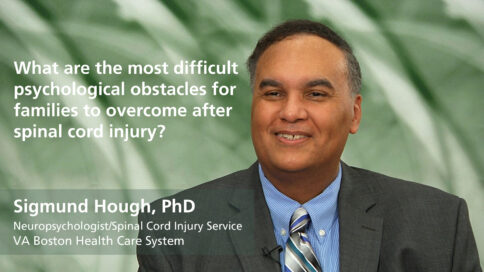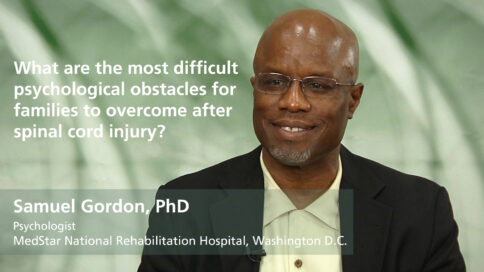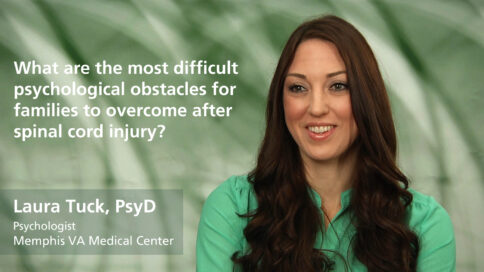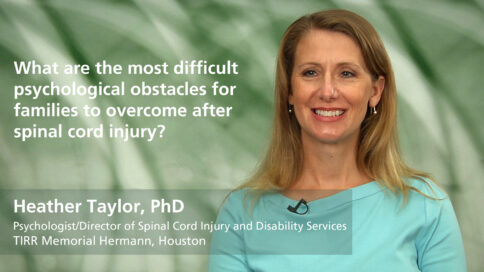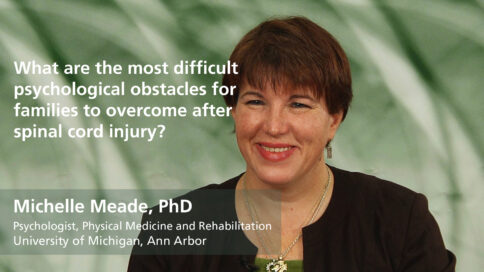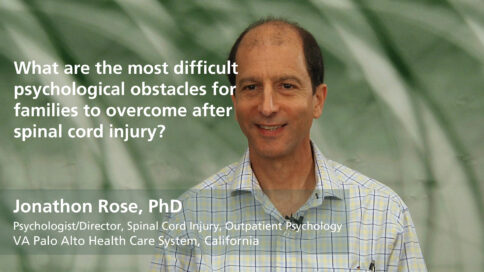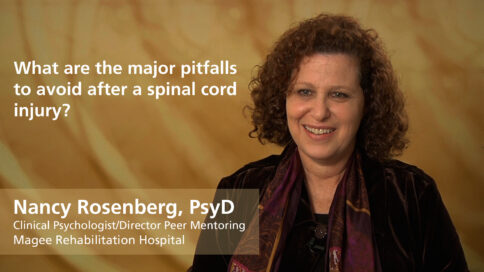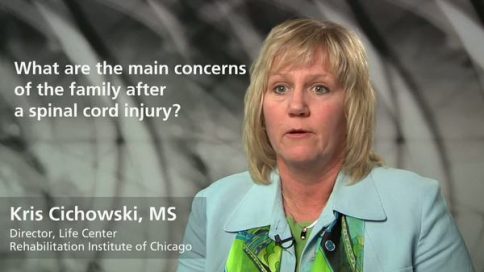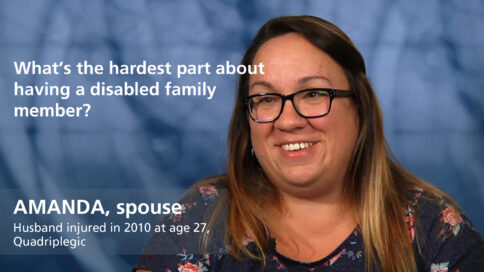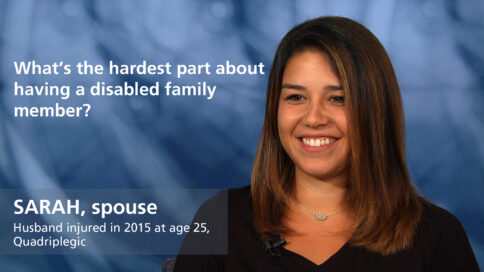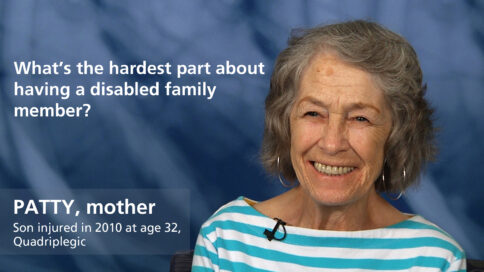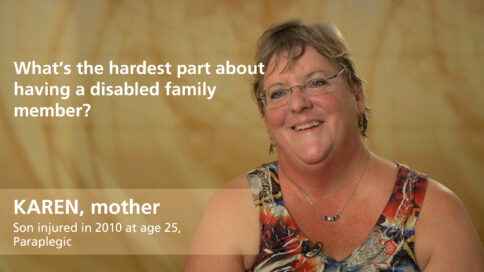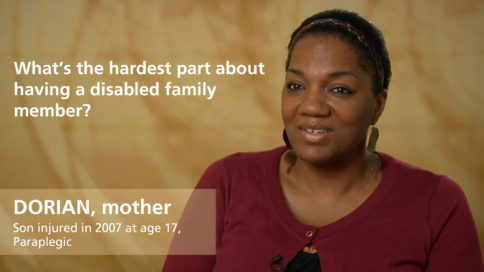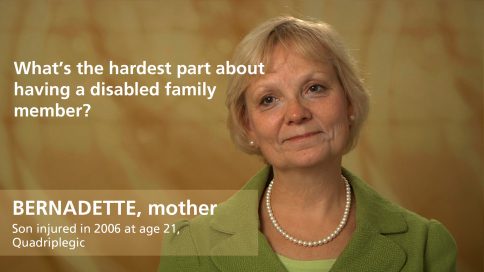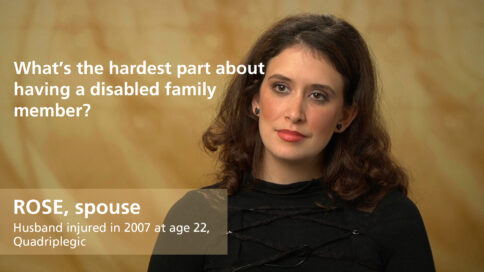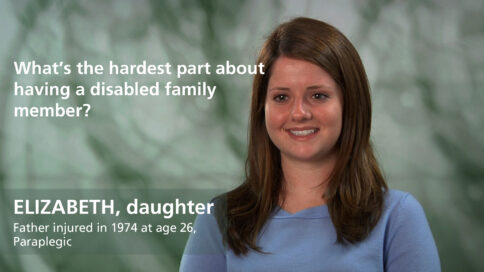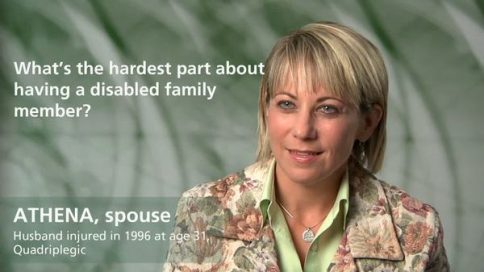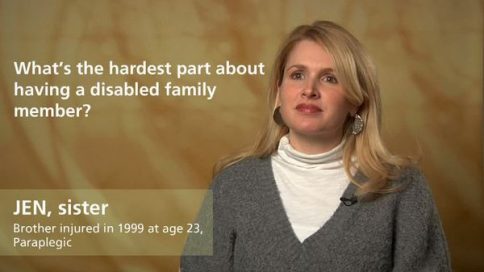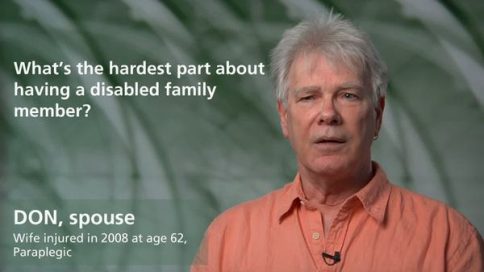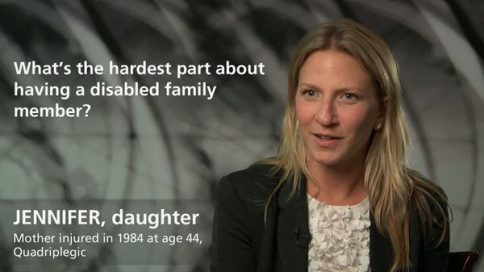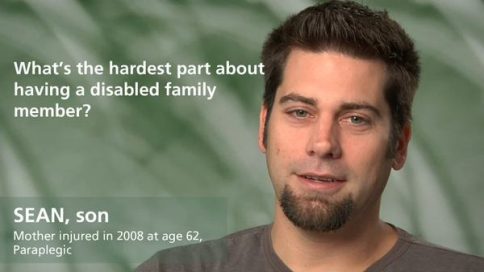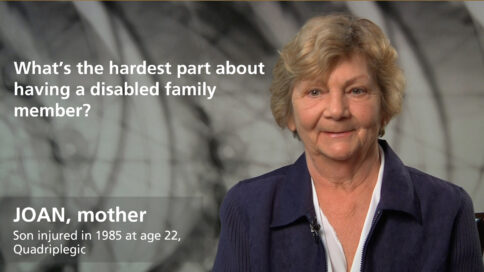What are the most difficult psychological obstacles for families to overcome after spinal cord injury? - Terrie Price, PhD
|
|
What are the most difficult psychological obstacles for families to overcome after spinal cord injury? |
|
Terrie Price, PhDNeuropsychologist/Director of Neuropsychology and Family Services, Rehabilitation Institute of Kansas City, Missouri |
||
| Read Bio | More Videos by Terrie Price | |
|
Share |
||
Transcript
Well families are dealing with the same questions and fears—“What does the future hold?” And for them wondering if they can be of assistance, what they can do, how is it going to affect their lives. And they’re also dealing with real-life questions such as, for many individuals, even the basics of—“How do I drive the person around? How do I get them into the house? How do I care for their basic needs?” So at the beginning they’re dealing with very practical needs and major concerns that we need to help them with. Going on, there are questions of—“What does the future look like?” “What is this individual going to be able to do?” “What’s my life going to be like?” We’re all trying to look into the future and unfortunately very few people know other individuals with spinal cord injury, so they don’t really have anything to turn around and look to. And if you look into some of the things you might find on the internet, it may speak to your fears but not be related to what’s going to help you. If we can find positive resources where they can talk to individuals who have had spinal cord injury or family members—that can be very helpful.
Show Less|
|
||
add
What are the most difficult psychological obstacles for families to overcome after spinal cord injury? |
||
Terrie Price, PhDNeuropsychologist/Director of Neuropsychology and Family Services, Rehabilitation Institute of Kansas City, Missouri |
More Videos by Terrie Price | |
| Transcriptadd | share | |
Well families are dealing with the same questions and fears—“What does the future hold?” And for them wondering if they can be of assistance, what they can do, how is it going to affect their lives. And they’re also dealing with real-life questions such as, for many individuals, even the basics of—“How do I drive the person around? How do I get them into the house? How do I care for their basic needs?” So at the beginning they’re dealing with very practical needs and major concerns that we need to help them with. Going on, there are questions of—“What does the future look like?” “What is this individual going to be able to do?” “What’s my life going to be like?” We’re all trying to look into the future and unfortunately very few people know other individuals with spinal cord injury, so they don’t really have anything to turn around and look to. And if you look into some of the things you might find on the internet, it may speak to your fears but not be related to what’s going to help you. If we can find positive resources where they can talk to individuals who have had spinal cord injury or family members—that can be very helpful.
